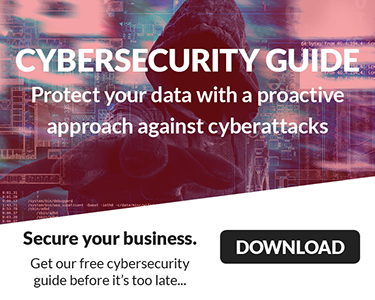 Let’s say you’re scrolling through Google reviews for IT support companies in Laredo. One has 4.9 stars and glowing testimonials. Another has fewer reviews but claims to specialize in cybersecurity and compliance.
Let’s say you’re scrolling through Google reviews for IT support companies in Laredo. One has 4.9 stars and glowing testimonials. Another has fewer reviews but claims to specialize in cybersecurity and compliance.
So… which one do you trust?
It’s tempting to go with the higher rating. But when it comes to cybersecurity and compliance, online reviews can be both helpful—and misleading.
Let’s break it down.
✅ The Pros: What Ratings and Testimonials Do Tell You
- Customer Experience
Reviews are great for understanding how a company treats its clients. Are they responsive? Friendly? Do they follow up? These are all signs of good customer service—and that matters when you’re dealing with tech emergencies.
- Reliability
If a company consistently gets praise for uptime, fast support, and issue resolution, that’s a good sign. It means they’re dependable—and that’s critical when your systems go down.
- Trust Signals
Positive reviews build trust. They show that real people have had real success with the provider. That’s especially important for small businesses who may not have the resources to vet every vendor.
⚠️ The Cons: What Ratings Don’t Tell You
- Security Posture
Here’s the kicker: most customers don’t know if their provider is truly secure. They might say “great service” without realizing their data is vulnerable. Cybersecurity is invisible—until it fails.
- Compliance Readiness
HIPAA, PCI-DSS, GDPR—these aren’t things customers typically review. A company might have 100 five-star ratings and still be non-compliant. Unless the reviewer is in a regulated industry, they may not even ask the right questions.
- Review Manipulation
Let’s be real—some reviews are curated, incentivized, or even fake. Especially in competitive markets, companies may game the system to look better than they are.
🕵️♂️ What Threat Actors See in Your Ratings
Here’s a twist you might not expect: threat actors watch reviews too.
According to cybersecurity analysts at Recorded Future and Unit 42, attackers often scan public-facing data—including reviews, testimonials, and social media—to identify:
- Targets with weak IT setups
If reviews mention slow support, outdated systems, or frequent issues, attackers see opportunity. - Industries with high-value data
Healthcare, finance, legal—if your reviews mention these sectors, you’re flagged as a high-value target. - Vendors with poor reputations
A provider with inconsistent reviews or vague service descriptions may be seen as easier to breach. - Photos of work environments or setups
If your business posts images of server rooms, network setups, or even branded devices, attackers can analyze hardware, software, and physical access points. A photo of your firewall? That’s a blueprint. - Detailed testimonials outlining your tech stack
“They helped us install Office 365, set up our SonicWall, and configure our VoIP system.” Sounds great—until a threat actor uses that to map your infrastructure and look for known vulnerabilities.
💡 Real Talk: Your online presence isn’t just a marketing tool—it’s a digital footprint. And footprints leave trails.
🔍 What You Should Look For Instead
When evaluating IT providers for cybersecurity and compliance, go beyond the stars. Ask:
- Do they mention compliance frameworks (HIPAA, SOC 2, etc.) on their site?
- Do they offer cybersecurity guides, audits, or vulnerability assessments?
- Are they members of local chambers or industry groups?
- Do they publish incident response plans or security certifications?
What providers stand out because they talk about these things? Which don’t just promise great service and show how they protect your business?
Final Thought: Ratings Are a Starting Point—Not the Finish Line
Online reviews are helpful. But when it comes to protecting your business, they’re just one piece of the puzzle.
Cybersecurity and compliance require depth, expertise, and transparency. So yes, check the stars—but dig deeper. Ask the hard questions. And choose a provider who’s ready to answer them.







